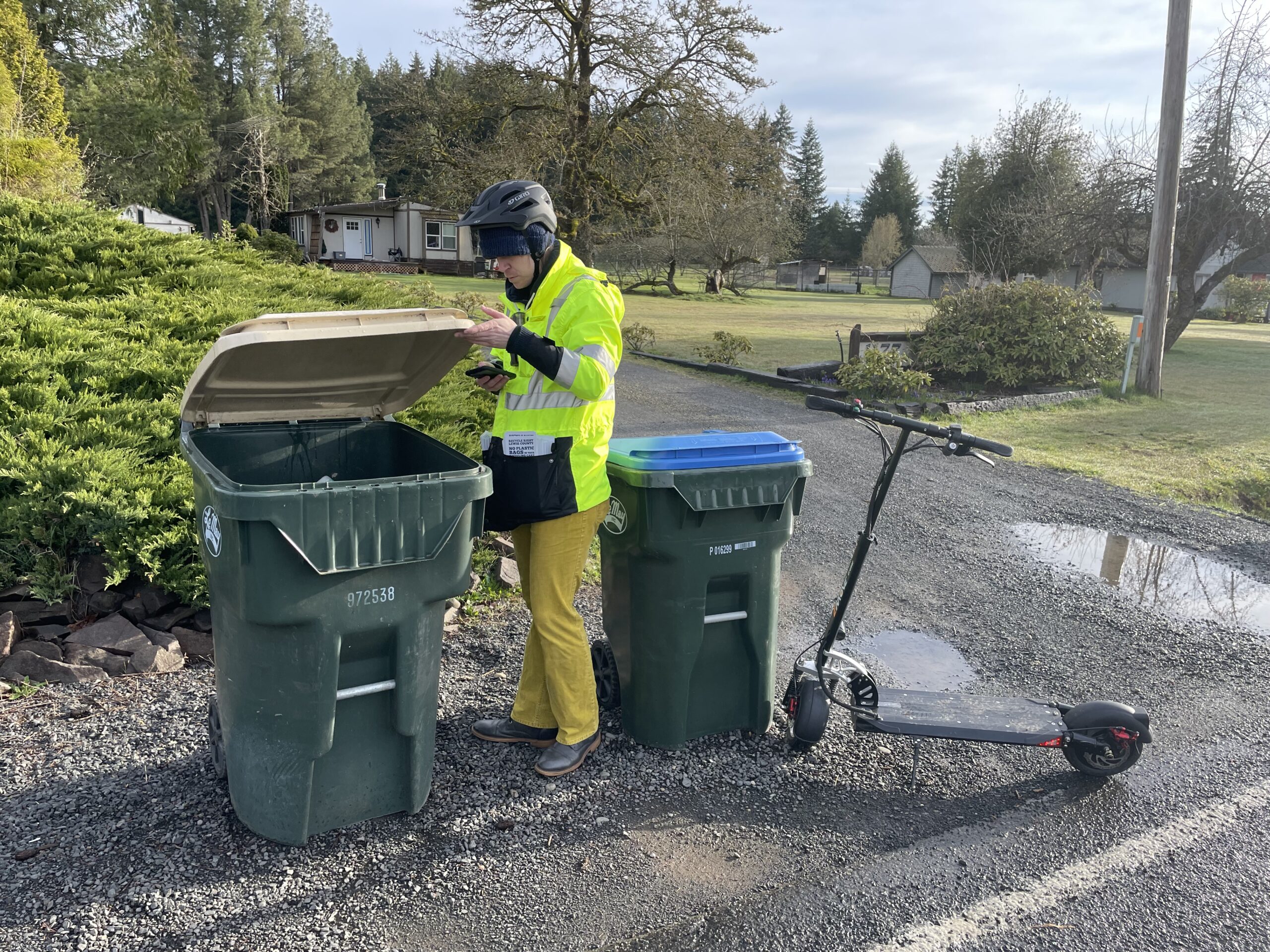Multifamily
The goal of our multifamily programs is to reduce recycling contamination in multifamily recycling streams and increase the volume of targeted materials. To achieve this goal, we track the rates of contamination at properties by performing lid-lift audits of containers and installing dumpster monitoring technology. In conjunction with these practices, staff will communicate with property management, educate residents via direct door-to-door outreach, make service changes, post signage such as container decals and collection area posters, and provide any other services that assist in facilitating recycling. These methods provide valuable insight into the specifics of the property's recycling stream, while also allowing us to track the rates of contamination before and after the door-to-door outreach. These programs have offered unique opportunities to delve deeper into contamination data, investigate different ways to reduce contamination, and implement recycling best practices.
Commercial Organics
The Resource Synergy team also designs and deploys organics diversion programs at commercial food service businesses. For locations that already have organics collection but need a refresh, we will capture multiple container observations using our proprietary mobile app to create a baseline of data before re-engaging with staff. If locations don’t have organics service, we will take container observations of their existing streams to create a baseline of dumpster fullness. We will then engage with the business owners to walk through their site’s Back of House (BOH) and Front of House (FOH) locations to develop a detailed understanding of their waste stream(s) from the point of generation to disposal. This information helps identify what food scrap bin collection inventory is needed and helps to identify proper bin locations to ensure convenience and consideration of space constraints. Once the inventory is identified and ordered (if necessary), we will coordinate with the business owner to arrange organics hauling, install the equipment, and train all staff on what can and can’t be collected using the local hauler’s guidelines. In our experience, participating sites typically require multiple check-ins and staff re-training to ensure program success and minimize contamination as much as possible. During these check-ins, we will continue to log container observations to determine the dumpster fullness and contamination levels to show success and/or areas of improvement. This strategy has a proven track record of successfully implementing or increasing organics collection at businesses which not only improves sustainability, but also often decreases waste costs.
single-family
One of our most effective and impactful services for simultaneously educating communities about recycling, improving collection rates, and decreasing contamination is cart-tagging. Our cart-tagging service is offered to municipalities and waste management service providers and can be implemented for both multifamily developments and single-family homes.
What is Cart-Tagging?
Cart-tagging can be approached in a variety of ways, but the general approach is to design educational tags to be affixed to residents’ carts when they are placed out for collection. These tags can include information about best disposal practices including what is and isn’t recyclable to educate or remind residents. Additional benefits may be achieved by inspecting recycling carts via lid-lift auditing of recycling carts and placing tags on them to provide specific feedback on the contents. These tags indicate whether the waste is properly sorted or if there are contaminants that need to be addressed. The primary goals are to educate residents, improve recycling habits, and reduce the overall contamination in recycling streams.
Benefits of Cart-Tagging
- Enhanced Recycling Rates/Reduced Contamination: By providing information on proper recycling, cart-tagging increases awareness and promotes more responsible waste disposal behaviors. If lid-lift audits and specialized tags are utilized, residents receive immediate feedback on their recycling practices, helping them understand which materials are acceptable in recycling bins and which are not. This direct communication is effective in correcting mistakes and encouraging better sorting habits that lead to reduced contamination.
- Environmental Benefits: Improved recycling practices reduce the amount of recyclable materials sent to landfills, conserving natural resources and lowering greenhouse gas emissions. Cart-tagging encourages a shift towards more effective and sustainable waste management practices, benefiting the environment in the long run.
Success Stories from Resource Synergy’s Cart-Tagging Initiatives
Lewis County
Coming soon!
Snohomish County
Coming soon!

